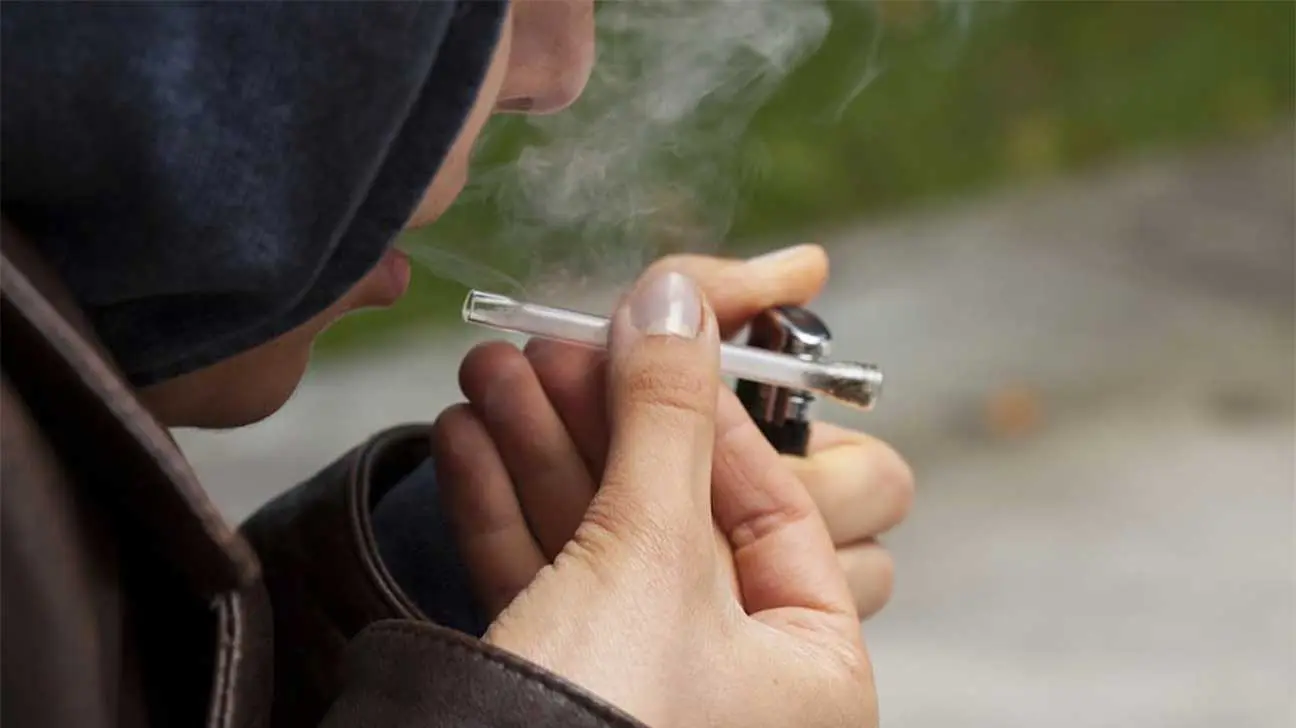
Drug paraphernalia used to smoke heroin may include a heroin pipe. This is often similar to or the same as a crack pipe, which may be a glass tube.
However, nearly any tube the size of a straw can be used to smoke heroin.
Items that may be used as a heroin pipe include:
- glass straws
- plastic straws
- glass hash oil pipe
- aluminum foil tube
- rolled-up dollar bills
- hollowed-out pens
Heroin pipes are recommended by harm reduction organizations to help avoid some of the more adverse effects of smoking heroin.
Other Items Used To Smoke Heroin
If you suspect a friend or family member is abusing heroin, it’s important to pay attention to their home, behaviors, and physical health.
There are often clear indicators, including common items used for heroin drug abuse, that may help you identify a problem. A heroin pipe is not the only thing used to smoke heroin.
Heating heroin to release its vapors may require a number of items, including:
- copper scrubbers
- silk roses
- rolling paper
- lighters or another heat source
If you find these drug use paraphernalia among your loved one’s things, they may be abusing crack cocaine, heroin, or other drugs of abuse.
How A Heroin Pipe Is Used
Heroin comes in brown and white powder form, and in tar form.
Heroin can be smoked by:
- Placing a small amount of the drug onto aluminum foil
- Applying flame beneath the foil
- Inhaling the released vapors through a straw or glass tube
How People Smoke Heroin
While heroin is usually smoked with the use of a glass heroin pipe, the drug may also be made into heroin cigarettes.
When heroin is smoked with a glass crack pipe or in a glass hash oil pipe, a small amount of the drug is placed in the bowl of the pipe and heated. Vapor is then inhaled through its narrow tube.
Smoking heroin with a glass pipe creates residue. This residue may prolong the use of the drug. Residue can be reheated and smoked for additional uses.
Side Effects Of Smoking Heroin
Heroin is an illegal and highly addictive opioid drug made from morphine. When abused, the drug creates a euphoric and sedative high that causes users to experience heavy drowsiness, cognitive impairment, and relaxation.
These effects are attributed to the drug’s effect on depressing the central nervous system. Heroin substance abuse can lead to fatal overdose, slowing the respiratory system so that the individual’s heart and breathing rate stop completely.
Some side effects of heroin abuse include:
- decreased breathing and heart rate
- flushing
- nausea
- increased appetite
- slow reflexes
- decreased pain
- inability to concentrate
- relaxation or drowsiness
Side effects caused by smoking heroin may include:
- lung infections
- upper respiratory infections
- coughing
- lung damage
Treatment For Heroin Addiction
Heroin use often requires aggressive addiction treatment in order to avert medical crises like heroin overdoses and support an addicted individual in their recovery.
Treating heroin addiction must support the individual in early stages as they detox and experience opiate withdrawal symptoms.
Drug treatment provides quality healthcare, behavioral health therapy, and medical advice.
If you or a loved one suffers from heroin addiction, please connect with a specialist today.
Addiction Resource aims to provide only the most current, accurate information in regards to addiction and addiction treatment, which means we only reference the most credible sources available.
These include peer-reviewed journals, government entities and academic institutions, and leaders in addiction healthcare and advocacy. Learn more about how we safeguard our content by viewing our editorial policy.
- National Center for Biotechnology Information — Treatment of heroin addiction
https://www.ncbi.nlm.nih.gov/pmc/articles/PMC1972884/ - National Center for Biotechnology Information — The Prevalence of Paraphernalia Found at the Scene of Drug-Related Deaths
https://pubmed.ncbi.nlm.nih.gov/27921312/ - U.S. National Library of Medicine: Medline Plus — Heroin
https://medlineplus.gov/heroin.html


